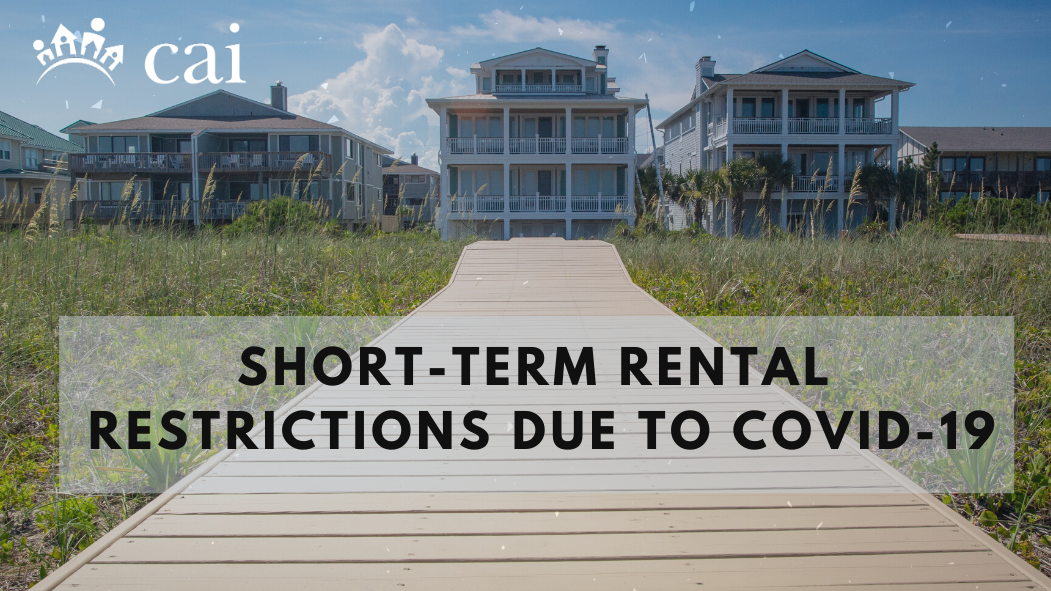Many states and localities are issuing orders prohibiting the operation of short-term rentals to stop the spread of COVID-19. By prohibiting short-term rentals, states are assisting in national efforts to mitigate travel of individuals and to slow the spread of the disease.
These bans range from 14 days to 90 days or the length of the respective state of emergency order. Many states have already extended their orders banning the operation short-term rentals. The following states currently have issued orders suspending the operation of short-term rentals:
- Delaware: On April 6, Gov. John Carney issued the tenth modification to his state of emergency declaration, banning all short-term rental units, including vacation home rentals, hotels, motels, and condo rentals. Commercial lodging in Delaware will remain closed through May 15 or until the public health threat is eliminated.
- Florida: On March 27, Gov. Ron DeSantis suspended vacation rental operations, including the rental of any house, condominium, cooperative, or dwelling unit that is also a transient public lodging establishment for 14 days. On April 10, he extended this suspension through April 30.
- Georgia: On April 8, Gov. Brian Kemp suspended short-term rentals, including any transaction for the lease or license to use residential property for residential or vacation purposes, through April 30.
- Maine: On April 3, Gov. Janet Mills suspended lodging operations, including hotels, motels, bed and breakfasts, inns, short-term rentals, RV parks, and campgrounds through April 30.
- Michigan: On April 9, Gov. Gretchen Whitmer banned the advertisement and rental of a short-term vacation property except as necessary to assist in housing a health care professional or volunteer aiding in the response to the COVID-19 crisis through April 30.
- New Jersey: On April 4, the State Director of Emergency Management of New Jersey issued an order allowing municipalities and counties to impose short-term rental restrictions.
- Pennsylvania: On April 2, Gov. Tom Wolf issued an administrative order banning short-term residential rentals through April 30.
- Vermont: On March 30, Gov. Phil Scott suspended operations at hotels, motels, bed and breakfasts, inns, short term rentals, and all public and private camping facilities and RV parks except for stated exemptions when supporting the state’s COVID-19 response. Additionally, the governor has suspended online lodging reservations.
Many localities, cities, and counties also have taken short-term rentals restrictions into their own hands. These restrictions range from full prohibition to allowing the rentals but requiring guests to self-quarantine for 14 days if they are from COVID-19 “hotspots” identified by the Centers for Disease Control and Prevention. This list may not be inclusive, so please check with your local municipality to verify.
Separately, some localities have taken action to restrict out-of-state owners from visiting their vacation homes. Short-term rental restrictions and the restricted use of vacation homes is intended to stop the spread of COVID-19 and to avoid overburdening local hospitals and healthcare resources. Some of these restrictions carry fines and penalties. CAI suggests community association boards of directors and community association managers defer to local law enforcement agents for enforcement of these orders.
CAI is tracking government actions impacting community associations and updating our website regularly. Click here for information regarding STATE GOVERNMENT ACTIONS during the COVID-19 pandemic.



